Food for thoughts
Oct. 6, 2020
Thesaurus : 05. CJCE - CJUE
Full reference: CJEU, Grand Chamber, 6th of October 2020, Privacy International c/ Secretary of State for Foreign and Commonwealth Affairs, C-623/17.
Read the summary of the judgment (in French)
Oct. 6, 2020
Teachings : Compliance Law

Oct. 5, 2020
Thesaurus
Oct. 2, 2020
Teachings : Compliance Law
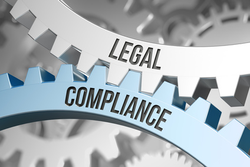
Ce livret de Cours expose le contenu et les objectifs du Cours, assuré par Marie-Anne Frison-Roche qui y consacre de nombreux travaux et activités, notamment au sein du Journal of Regulation & Compliance, puis les modalités de validité ainsi que la bibliographie.
Contenu et objectif
La Compliance est un terme anglophone qu'il est difficile à traduire en langue française. Il est parfois traduit en "conformité", mais c'est en quelque sorte reculer pour mieux sauter car l'on ne sait guère définir juridiquement la "conformité". Le terme est d'ailleurs inséré dans des expressions comme "programme de conformité" ou "engagement de conformité", qui se réfèrent à autre chose. L'absence de définition nette est un handicap majeur en Droit et l'on affirme souvent que la Compliance ne relève pas de celui-ci, mais plutôt par exemple de l'éthique.
C'est pourtant au titre de violation de ces normes et obligations d'un corpus de Compliance que des sanctions très lourdes sont infligées à des opérateurs économiques. L'on s'aperçoit alors que la Compliance a été élaborée dans des secteurs très particuliers, comme le secteur bancaire ou financier, pour des opérations très spécifiques, comme les flux financiers internationaux, ou des prohibitions particulières comme l'interdiction de corrompre ou de blanchir l'argent, ou pour exprimer les mises en œuvre d'engagement après des condamnations prononcées par les autorités de concurrence.
Mais tout d'abord c'est dans le Droit général de la concurrence que l'on trouve les premiers programmes de Compliance . C'est ensuite et aujourd'hui dans des termes d'une généralité rarement atteinte que l'exigence de Compliance est aujourd'hui formulée, puisqu'il s'agirait de respecter la totalité de toutes les "normes" applicables en tous lieux par tout le monde. Plus encore, la Compliance serait la façon dont les opérateurs sont contraints de faire en sorte que les objectifs globaux des systèmes de régulation se concrétisent, puisque ces opérateurs privés "globaux" ont seuls la puissance pour y parvenir.
La Compliance devient alors l’internalisation de la Régulation . Elle implique la supervision des opérateurs, notamment leur transparence , même s'ils n'agissent pas dans un secteur régulé. Le système juridique en est transfiguré, notamment dans son organisation naguère en branches distinctes : les branches du Droit ne seraient plus que des boites à outils (toolbox), interchangeables appréhendées à l'aune de leur effectivité pour la Compliance ...
Il est donc urgent de construire les principes directeurs de ce qui est en train d'apparaître : "Le Droit de la Compliance ". La Compliance ne semble pourtant s'appliquer qu'à des entreprises ou entités très puissantes, sans doute parce qu'elles sont puissantes, et l'on y retrouve toutes les branches du Droit : droit pénal , droit constitutionnel, droit international, droit des obligations, droit administratif, droit de la régulation, droit de la concurrence, droit des données, droit financier, etc. Est pourtant en train d'émerger un "Droit de la Compliance ".
Voir ci-dessous l'explicitation du mode de validation, de la charge de travail, du format pédagogique et de la bibliographie.
Oct. 1, 2020
Thesaurus : Soft Law
Full reference: Baer, B., Proposals to Strengthen the Antitrust Laws and Restore Competition Online, Testimony before the United-States House of Representatives, Committee on Judiciary, Subcommittee on Antitrust, Commercial and Administrative Law, 1st of October 2020
Read Bill Baer's presentation by Brookings Institution of which he is a member
Oct. 1, 2020
Thesaurus : Soft Law
Full reference of the guidelines: Commission Nationale de l'Informatique et des Libertés (CNIL), Délibération n°2020-091 du 17 septembre 2020 portant adoption de lignes directrices relatives à l'application de l'article 82 de la loi du 6 janvier 1978 modifiée aux opérations de lecture et écriture dans le terminal d'un utilisateur (notamment aux "cookies et autres traceurs") et abrogeant la délibération n°2019-093 du 4 juillet 2019
Full reference of the recommendation: Commission Nationale de l'Informatique et des Libertés (CNIL), Délibération n°2020-092 du 17 septembre 2020 portant adoption d'une recommandation proposant des modalités pratiques de mise en conformité en cas de recours aux "cookies et autres traceurs".
Read the guidelines (in French)
Read the recommendation (in French)
Read the presentation of these guilines and of this recommendation by the CNIL (in French)
Read Marie-Anne Frison-Roche's comment about this in the Newsletter MAFR - Law, Regulation & Compliance of 1st of October 2020
Sept. 30, 2020
Teachings : Generall Regulatory law

Résumé de la leçon : Le Droit de la Régulation a eu beaucoup de mal à trouver sa place dans le système juridique, oscillant entre le Droit de la concurrence et le Droit public. Cette difficulté laisse des traces. Les difficultés à situer le Droit de la régulation dans le système juridique rejoint les difficultés de définition qu'il rencontre. Ces difficultés sont aujourd'hui accrues par les espérances de "Régulation du numérique", avatar des réflexions sur les désirs de "Régulation de la mondialisation", certains estimant qu'il faut construire une concurrence effective dans cet espace-là, tandis que d'autres affirment que la solution est une reprise en main des Etats. Trois définitions du terme "Régulation" sont effectivement actuellement actifs dans le Droit de la Régulation.
La première définition du Droit de la Régulation vise la Régulation comme "Voie vers la concurrence". Certains limitent le Droit de la Régulation à cela, la concurrence étant alors comme son "idéal", certes sans cesse retardé, son Graal. Cela conduit à une application technique des règles qui posent la concurrence en principe, et non pas en son exception. Cela implique une méthodologie en matière d'interprétation des textes. La deuxième définition du Droit de la Régulation vise la Régulation comme mécanisme "adjacent" à un système concurrentiel, ce qui conduit à surestimer parfois ce qui ne sont que des insertions adjacents de mécanismes de droit de la concurrence dans des secteurs économiques par principes régulés. Ainsi et pour prendre un exemple les mécanismes techniques constituant des monopoles économiquement naturels sont régulés, tandis que tous les autres comportements ou structures du secteurs relèvent de l'ordinaire, c'est-à-dire du Droit de la concurrence, qui constitue le "Droit commun". La question qui peut alors se poser est le régime juridique des contrats d'accès aux facilités essentielles, lesquelles ne sont pas le seul apanage des réseaux de transport. Les enjeux de qualification sont ici préalables et majeurs. Dans la troisième définition du Droit de la Régulation, la Régulation peut se définir non plus en perspective mais en part égale voire en préférence à la concurrence, lorsque des raisons de durée, confiance, dangers, risques, conduisent à concevoir la Régulation comme un équilibre instable et durable entre le principe de concurrence entre d'autres principes, un équilibre entre le principe de concurrence et d'autres soucis. Il peut s'agir de principes que la technicité même de l'objet requiert mais cela peut être aussi que le regarde qui est porté sur cet objet lui fait porter : par exemple le souci de soin que l'on fait porter au médicament, le souci d'inclusion que l'on fait porter à la banque, le souci de chaleur partagée que l'on fait porter à l'électricité, le souci de civilisation, que l'on fait porter à une entreprise, où que l'on voit à travers un bien marchand mais dans lequel l'on a injecte un "droit de propriété intellectuelle" qui est lui-même un instrument de Régulation. Là encore, la propriété intellectuelle comme instrument de Droit de Régulation est un enjeu majeur, et cela plus que jamais.
Mais qui est légitime à porter ce regard juridiquement créateur : le juge ? l'entreprise (socialement responsable) ? le législateur national ? l'organisme international ? Ou bien, parce que ce sont des "choix", un politique, mis à cette position de choisir par le Peuple ?
___
Consulter les slides servant de support à la Leçon
Accéder au Plan général du Cours de Droit commun de la Régulation.
Se reporter à la présentation générale du Cours de Droit commun de la Régulation.
Consulter le Dictionnaire bilingue du Droit de la Régulation et de la Compliance.
Consulter la Bibliographie générale du Cours de Droit commun de la Régulation
Consulter la bibliographie ci-dessous, spécifique à cette Leçon relative au Droit de la Régulation dans la perspective de la Concurrence
Sept. 29, 2020
Newsletter MAFR - Law, Compliance, Regulation

Full reference: Frison-Roche, M.-A., Judge between Platform and Regulator: current example of Uber case in U.K., Newsletter MAFR - Law, Compliance, Regulation, 29th of September 2020
Read by freely subscribing the other news of the Newsletter MAFR - Law, Compliance, Regulation
Summary of the news:
On 22nd of September 2017, Transport of London (TFL), London Transport Regulator, refused to renew the licence, granted on 31st of May 2012 for 5 years, authorizing Uber to transport people because of criminal offenses committed by Uber's drivers. On 26th of June 2018, The Westminster Court prolonged Uber's licence for 15 months under the condition that the platform prevent the reproachable behaviors of its drivers. After these 15 months, the TFL refused once again to prolonge Uber's licence because of the persistence of aggressions against passengers. Uber, once again, contest this decision before the Westminster Court.
In a decision of 28th of September 2020, the Court observes that during the 15 months, the platform implemented many measures to prevent aggressions, that the level of maturity of these measures has improved over time and that the number of offenses was reduced over the period (passing from 55 in 2018 to 4 in 2020). The Court estimated the the implementation of this actions is sufficient to grant a new licence to Uber.
We can learn three lessons from this decision:
- The Compliance obligation is not a result obligation but a mean obligation, which means that it is not reasonable to expect from a crucial operator (Uber, for instance) that it prevent every cases of agression but that it is salient to judge it on the effort it deploys to try to be closer to this ideal situation. Moreover, the crucial operator must be proactive, that is going away from the figure of passive subject of Law who apply measures enacted by the regulator in terms of fighting against aggressions to be an actor of the research of the best way to fight abusive behaviors, internalizing this "monumental goal.
- The judge appreciates the violation committed by those whose the firm is responsible "in context", that is evaluates the concrete situation in a reasonable way.
- It is the judge who decides in last resort and like the crucial operator, it must be reasonable.
Read to go further:
Sept. 28, 2020
Thesaurus : 09. Juridictions étrangères
Full reference: Westminster Magistrates' Court, 28th of September 2020, Uber London Limited v. Transport for London
Read Marie-Anne Frison-Roche's commentary in the Newsletter MAFR - Law, Regulation & Compliance
Sept. 28, 2020
Thesaurus : Soft Law
Full reference: Giuliani-Viallard, A., The Europe of Compliance, at the heart of tomorrow's world. For a transformation of our European businesses and the upturn in their international competitiveness, European Issue, n°572, policy paper from the Robert Schuman Foundation, 28th of September 2020, 3 p.
Sept. 27, 2020
Interviews
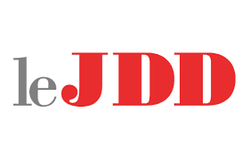
Référence complète : Frison-Roche, M.-A., "Plus le monde est dérégulé, et plus on a besoin de régulation", Journal du Dimanche - JDD, 27 septembre 2020.
Les questions étaient les suivantes :
Comment définissez-vous les professions réglementées?
Un "titre" y est apposé sur les personnes, avocat, dentiste, notaire, etc. Ça fonctionne comme un certificat. Comme en finance – produits financiers "certifiés" – ou dans l'alimentation – aliments "certifiés" –, ce titre est un gage de traçabilité : il crédite aux yeux de tous la personne d'une compétence qu'il n'est a priori pas nécessaire de vérifier. Ces professions structurées sont des piliers de la vie économique et sociale car les accréditeurs [autorités publiques ou instances professionnelles] garantissent l'indépendance et le dévouement du professionnel. Ainsi l'adjectif "réglementées" parvient sans doute mal à définir à lui seul ces professions. Je parlerais plutôt de "professions publiquement structurées".
Est-ce un système qui a de l'avenir?
Oui, très grand ! Dans un monde ouvert qui cherche ses repères et sa stabilité, les professions réglementées, parce qu'elles sont structurées et structurantes, seront essentielles. Ainsi, plus le monde est dérégulé, plus on a besoin de régulation ! Le paradoxe n'est qu'apparent. Il faut arrêter d'opposer marché et État. Moins il y a de réglementations fixes, plus on a besoin de repères. Par exemple, j'arrive dans un pays étranger et j'ai un problème de droit : mon premier réflexe sera de trouver un avocat, en qui j'aurai confiance du fait de son titre, qui valide a priori ses compétences et son intégrité.
Les professions réglementées ont été attaquées, presque cernées, par le droit de la concurrence
Nous vivons visiblement le contraire, avec l'explosion de sites d'avis et de conseils…
Justement, voilà la question de la source, de savoir qui certifie : ici ce sont les clients ou des amis des clients, il n'y a plus de distinction entre le certificateur et l'utilisateur. Cette absence de distance produit une capture et la perte catastrophique d'une exigence clé de tout système évolué : l'impartialité et l'indépendance de celui qui juge.
Comment les professions réglementées ont-elles évolué ces dernières années?
Elles ont été attaquées, presque cernées, par le droit de la concurrence. La direction de la concurrence de la Commission européenne ou l'Autorité de la concurrence en France tenaient le raisonnement suivant : les diplômes spécifiques exigés et les structures professionnelles verrouillent le secteur, il faut l'aérer. Ce droit conçoit la régulation comme une transition vers la concurrence et non comme un équilibre entre concurrence et, par exemple, le souci de la personne. Les professions dites "réglementées" sont au contraire structurées pour maintenir cet équilibre entre le dynamisme de la concurrence et l'humanisme du droit. Sur ce point, avocats et notaires doivent unir leurs forces.
Quelle vision avez-vous de la réforme Macron, entamée il y a cinq ans?
Elle est allée dans le sens de la concurrence, mais avec en filigrane une perspective de régulation définitive et non une transition avec un marché du droit pur et simple. Les instances de la concurrence conçoivent sans doute la société à travers le seul prisme du marché concurrentiel, mais l'Europe s'en détache de plus en plus. Il y a aujourd'hui l'ambition de construire une Europe souveraine qui ne peut pas être simplement concurrentielle. Les professions réglementées ont en ce sens un rôle essentiel à jouer, notamment par l'accélération de leur transition numérique, souhaitée pour les avocats et par le rapport Perben, et mise en oeuvre par les notaires.
Sept. 24, 2020
Publications
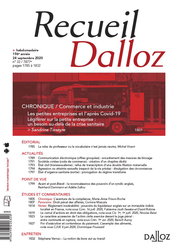
Full Reference: Frison-Roche, M.-A., L'aventure du Droit de la Compliance ("The Adventure of Compliance Law"), Chronique de Droit de la Compliance ("Chronicles MAFR - Compliance Law"), Recueil Dalloz, September 24, 2020.
Read the Chronicle (in French)
This Chronicle of Compliance Law is based on a bilingual working document with additional developments, technical references and hypertext links.
Read the Working Paper (written in English).
____
Chronicle Summary:
Compliance Law is an "adventure" in that it is a new branch of Law, anchored in Regulatory Law, which has freed itself from it while retaining the major principles to which it gives a new breath.
In the same way that I entered Sciences Po in 2000 to create a Master de Droit économique centered around Regulation Law, this new branch of Law, a Forum de la Régulation and a Chaire Régulation, now "20 ans après" and as in any adventure, the objective is to give solid, coherent and substantial bases to this Compliance Law which is practiced intensely without being fully conceived.
Compliance should not be reduced to a procedure of effectiveness and efficiency of other rules, such as Competition Law or Criminal Law, a sort of enforcement process going from the Ex Post to the Ex Ante, because that would be both too little (simply processes) and too much (the power of Compliance Law in the service of all rules, the violence of Compliance being able to serve in very violent Substantial Law itself, which one can observe in some legal systems).
It is necessary to anchor all this new branch of Law in goals, this Law being teleological in nature as is the Law of Regulation. These goals are "monumental", by which the public authorities express still, and more now than in the past, "pretensions", such as the protection of the environment or of people even if they are distant from the territory on which they have traditionally taken.
All these "monumental goals" converge towards a goal that encompasses them all: the protection of the person, which justifies the unusual power of legal Compliance mechanisms and the new relationship between States and "crucial operators". In this, Europe is exemplary of what could be this new branch of Law of which it bears the model.
______
Sept. 24, 2020
Thesaurus : 09. Juridictions étrangères
Full reference: Constitutional Court of Belgium, 24th of September 2020, Décision concernant le recours en annulation partielle de la loi du 18 septembre 2017 relative à la prévention du blanchiment de capitaux et du financement du terrorisme et à la limitation de l'utilisation des espèces (decision concerning the partial annulment appeal of the law of 18th of September 2017 related to money laundering and terrorism financing prevention and to the restriction of the use of cash), n°114/2020
Read the law of 18th of September 2017 (in French)
Sept. 24, 2020
Newsletter MAFR - Law, Compliance, Regulation
The Economic Impact of Law: a new report about it. And what about Regulation & Compliance? 3 lessons
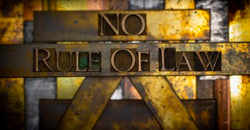
Full reference: Frison-Roche, M.-A., The Economic Impact of Law: a new report about it. And what about Regulation & Compliance? 3 lessons, Newsletter MAFR - Law, Regulation, Compliance, 24th of September 2020
Read by freely subscribing the other news of the Newsletter MAFR - Law, Regulation, Compliance
Summary of the news:
On 18th of September 2020, the European Economic and Social Committee (EESC) published a report about the impact of Rule of Law on Economic Growth.
The EESC defines the Rule of Law as the obligation to "all public powers act within the constraints laid down by law, in accordance with the values of democracy and fundamental rights, and under the control of independent and impartial courts". According to the Committee, the Rule of Law thus defined is favorable and even necessary to a durable economic growth especially because instability of regulations, absence of guarantee of labor and property rights, discrimination or non-application of contracts poorly favors or are detrimental for investments and economic agents' productive activities. The EESC observes by the way that countries which respect the Rule of Law grow more rapidly than those which do not respect it. The Committee also insists on the destructive effect of corruption which destroys public services, public action, public institutions on the long run and confidence, increasing inequalities.
Although EESC approves the actions of European Commission to advance Rule of Law in the Union, it however invites the Commission to continue its efforts by giving a more important place to jurisdictions and by protecting better media freedom in a context of rising autocratic forces in Eastern Europe.
We can learn three lessons from this report:
- The common interest of European Union States to guarantee the Rule of Law. Indeed, Rule of Law is not only written in article 2 of TFEU and has been consecrated by CJEU case law, it is also a condition of economic progress.
- The fight against corruption must be the object of a redoubled effort. In this perspective, Compliance Law is able to offer appropriate innovating legal tools.
- To a definition of Regulation and Compliance Law as a simple process of application of mechanical legal rules, it is necessary to substitute a definition of Regulation and Compliance Law based on the notion of "monumental goals" and people protection. In this perspective, these branches of Law would prove to be powerful tools in the service of the advancement of the rule of law in the European space.
Sept. 22, 2020
Newsletter MAFR - Law, Compliance, Regulation

Full reference: Frison-Roche, M.-A., Interregulation: way of "cooperation protocol" between Regulatory Bodies. Example between French Financial Markets Authority and Anticorruption Agency, Newsletter MAFR - Law, Compliance, Regulation, 22nd of September 2020
Read by freely subscribing other news of the Newsletter MAFR - Law, Compliance, Regulation
Summary of the news:
Although Regulation Law was born from the notion "sector", constant interferences between sectors and frequent interactions between some sectors and more general questions common to different sectors, make interregulation necessary. Compliance Law being the extension of Regulation Law, this interregulation mechanism is also necessary in Compliance Law.
This interregulation can take many legal paths like letters exchanges between regulators, the creation of a network of regulators and supervisors at the world level or about some specific question or the adoption of a "cooperation protocol" as the AMF (French Financial Market Regulator) and the AFA (French Anticorruption Agency) did on 16th of September 2020 to reinforce their respective fight against corruption, against market abuses and for the protection of investors.
This cooperation protocol between the AFA and the AMF has the following subjects:
- A more efficient methodology concerning the research and the analysis of corruption and market abuses.
- A more efficient prevention of corruption and market abuses.
- A better capacity to give recommendations of new regulations to the Legislator.
- A more rigorous monitoring of international works on the topic.
- A more coherent information for the public.
Are regulators the new teachers?
Sept. 21, 2020
Law by Illustrations

This working paper is an extraction of an eponym newsletter published in the Newsletter MAFR - Law, Regulation & Compliance on 21st of September 2020 on LinkedIn.
Sept. 21, 2020
Newsletter MAFR - Law, Compliance, Regulation

Full reference: Frison-Roche, M.-A., Regulation, Compliance & Cinema: learning about Internet Regulation with the series "Criminals", Newsletter MAFR - Law, Compliance, Regulation, 21st of September 2020
Read by freely subscribing other news of the Newsletter MAFR - Law, Compliance, Regulation
Summary of the news:
Season 2 Episode 3 of the British version of the series "Criminals" features the character of Danielle. Danielle is a mother which has decided to hunt down pedophiles on social networks in order to trap them and show to the world their acts. Danielle insists on the efficiency of her action with regard to the police and justice that she finds unproductive. In the episode, Danielle is accused of defamation by the police. While policemen try to explain to Danielle the importance of using a regular procedure and to respect the Rule of Law aiming to prove its accusations, she makes efficiency her only principle. According to her, her methods get results (on the contrary of those used by the police which respect procedures) and those she accuses to be pedophiles do not deserve defense rights.
We can learn three lessons from Danielle's story:
- If Compliance Law is just a process of application of mechanical rules, then Rule of Law is not salient face to the principle of efficiency. But, if Compliance Law is defined by its "monumental goals" and that the respect of Rule of Law is erected in "monumental goal", then efficiency and Rule of Law become compatible and congruent.
- The digital space must be disciplined by crucial digital firms supervised by public authorities, like in France or Germany for hate speeches and disinformation.
- Compliance Law, and Law in general, must be pedagogue towards individuals as Danielle which do not understand why their behaviors are reproachable.
Sept. 16, 2020
Teachings : Compliance Law
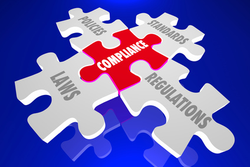
Consulter le Dictionnaire bilingue du Droit de la Régulation et de la Compliance (v. ci-dessous des entrées plus précises)
Consulter dans la Newsletter MAFR - Law, Compliance, Regulation ce qui est plus particulièrement afférent à la définition de la Compliance (v. ci-dessous des articles plus précis)
_____
Consulter la Bibliographie générale du Cours de Droit de la Compliance
Consulter la bibliographie ci-dessous, spécifique à cette Leçon relative à la définition de la Compliance et du Droit de la Compliance.
Résumé de la leçon. L'exercice de définition n'est en rien théorique. Surtout pas concernant la Compliance, relevant d'une terminologie anglaise ce qui semble compliquer encore les choses mais il faut au contraire partir de là, à savoir le fossé qui semble exister entre le mot "Compliance" et le mot "Conformité". Il apparaît en premier lieu que celui-ci comporte une dimension mécanique que le premier ne comporte pas de prime abord. Cela renvoie à des effets techniques et à une conception, qui convie dès lors à des algorithmes la prise en charge de ces sujets. Une des questions est alors la responsabilité et le sort des êtres humains. L'enjeu disciplinaire apparaît en second lieu, car l'idée que la Compliance relève du Droit ne s'impose pas. En outre, si on ramène la Compliance vers le Droit, de quelle branche du Droit relève-t-il, ce qui implique des compétences juridictionnelles et substantielles ? Sauf à dire qu'il pourrait constituer une branche du Droit autonome... Presque tous y sont réticents. Pourtant, c'est bien vers cela que non seulement nous allons mais vers cela que nous devons aller.
____
Consulter les slides servant de support à la Leçon
Se reporter à la Présentation générale du Cours de Droit de la Compliance.
Consulter la Bibliographie générale du Cours de Droit de la Compliance
Consulter la bibliographie ci-dessous, spécifique à cette Leçon relative aux enjeux pratiques du Droit de la Compliance
Sept. 16, 2020
Thesaurus : Doctrine
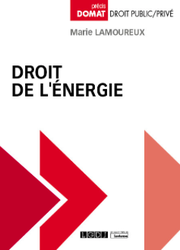
Full reference: Lamoureux, M., Droit de l'énergie, Collection "Précis Domat Droit public/Droit privé", LGDJ-Lextenso, 2020
Sept. 16, 2020
Teachings : Generall Regulatory law
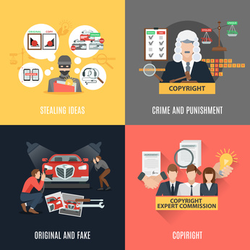
Résumé de la leçon.
L'on se dispute sans fin sur la "définition" de la Régulation et de ce qui constitue aujourd'hui le Droit de la Régulation. En effet, l'on a observé que des pans entiers de l'économie, de secteurs souvent caractérisés et par leur technicité et par leur dimension politique, sont aujourd'hui organisés d'une façon particulière, autour d'un Régulateur.
Ces régulateurs ont prise sur des "secteurs" ou des activités "sectorielles" (c'est pourquoi on les appelle parfois des "régulateurs verticaux"). Ainsi transport, poste, télécommunications, énergie, banque, finance, assurance, se sont chacun bâtis par des réglementations compliquées et comme imprégnées de l'objet technique sur lequel elles portent. Mais elles ont un point commun : un Régulateur, le plus souvent prenant la forme d'une Autorité administrative indépendante (AAI) ou d'une Agence, plus ou moins indépendante du Gouvernement, rendant des comptes au Parlement, doté de très multiples pouvoirs sur les opérateurs du secteur dont il a la charge. De fait le Régulateur est le symptôme du Droit de la Régulation.
Cette dimension institutionnelle a heurté la tradition juridique et politique française. Elle participe pourtant à l'émergence d'un "droit commun de la régulation", que les spécificités sectorielles continuent souvent de masquer. Ainsi le régulateur est ce par quoi le droit constitutionnel appréhende le droit de la régulation, il constitue donc le "bastion avancé" de celui-ci.
A partir de cette redistribution des personnages, mettant le Régulateur au centre, une règle nouvelle apparaît : le régulateur a autant de pouvoirs que cela est nécessaire, règle étrange pour un système juridique traditionnel, mais qui lui permet d'être présent à la fois en Ex Ante et en Ex Post.
Le Régulateur en est le titulaire juridiquement légitime dans un Droit de la régulation téléologiquement construit, qu'il s'agit de créer une concurrence dont le principe est simplement déclaré (premier cercle de la régulation), qu'il s'agisse de maintenir d'une façon définitive des équilibres instables affectés par une défaillance de marché (deuxième cercle) ou qu'il s'agisse de concrétiser des objectifs politiques que la "raison économique" ne connait pas.
A l'aune de ces impératifs techniques et économiques, qui font du régulateur un organe d'un genre nouveau, les distinctions juridiques classiques ne tiennent plus. Ainsi, la distinction empruntée au droit traditionnel entre "régulateur des libertés publiques" et "régulateur économique" est aujourd'hui inadéquate, comme le montre aussi bien la régulation financière que celle du numérique.
_____
Consulter les slides servant de support à la leçon
Accéder au Plan général du Cours de Droit commun de la Régulation.
Se reporter à la présentation générale du Cours de Droit commun de la Régulation.
_____
Consulter le Dictionnaire bilingue du Droit de la Régulation et de la Compliance (v. ci-dessous des entrées plus précises)
Consulter dans la Newsletter MAFR - Law, Compliance, Regulation ce qui est plus particulièrement afférent aux Régulateurs (v. ci-dessous des articles plus précis)
_____
Consulter la Bibliographie générale du Cours de Droit de la Régulation
Consulter la bibliographie ci-dessous, spécifique à cette Leçon relative au Régulateur
Sept. 16, 2020
Publications

🌐follow Marie-Anne Frison-Roche on LinkedIn
🌐subscribe to the Newsletter MAFR Regulation, Compliance, Law
____
Full reference: M.-A. Frison-Roche, Se tenir bien dans l'espace numérique, in Penser le droit de la pensée. Mélanges en l'honneur de Michel Vivant, Lexis Nexis and Dalloz, 2020, pp. 155-168.
____
📝Read the article (in French)
____
English summary of the article: The digital space is one of the scarce spaces not framed by a specific branch of Law, Freedom also offering opportunity to its actors to not "behave well", that is to express and diffuse broadly and immediately hateful thoughts through Hate speechs, which remained before in private or limited circles. The intimacy of Law and of the legal notion of Person is broken: Digital permits to individuals or organizations to act as demultiplied and anonymous characters, digital depersonalized actors who carry behaviors that are hurtful to other's dignity.
Against that, Compliance Law offers an appropriate solution: internalizing in digital crucial operators the mission to disciplinary and substantially hold the digital space. The digital space has been structured by powerful firms able to maintain order. Because Law must not reduce digital space to be only a neutral market of digital prestations, these crucial operators, like social networks or search engines, must be forced to substantially control behaviors. It could be about an obligation of internet users to act with their face uncover, "real identity" policy controlled by firms, and to respect others' rights, privacy rights, dignity, intellectual property rights. In their Regulatory function, digital crucial firms must be supervised by public authorities.
Thus, Compliance law substantially defined is the protector of the person as "subject of law" in the digital space, by the respect that others must have, this space passing from the status of free space to the one of civilized space, in which everyone is obliged to behave well.
______
Read to go further:
- Frison-Roche, M.-A., L'apport du Droit de la Compliance à la gouvernance d'Internet, 2019
- Frison-Roche, M.-A. (dir.), Internet, un espace d'interrégulation, 2016
Sept. 16, 2020
Teachings

Afin que l'obligation sanitaire de réaliser l'enseignement à distance doit être dans la mesure du possible compensée, il convient de débuter chacun des cours dispensés par un exposé oral, ce que la technologie permet aisément, exposé qui sera réalisé par un ou deux étudiants (pas plus).
La coordination des étudiants sera assurée par le ou la délégué (e) élu lors de l'ouverture de l'enseignement.
Le premier cours sera entièrement consacré à la question de la définition du Droit de la Compliance et ne donnera pas lieu à un exposé.
Mais dès la deuxième séance et jusqu'à la fin du cours, puisque les conditions sanitaires excluent un contrôle sur table, les cours débuteront par un exposé d'une quinzaine de minutes.
Parce que les étudiants sont en fin de cursus d'étude et disposent d'une bibliographie générale qui leur a été communiquée longtemps à l'avance, leur ayant permis de travailler par eux-même la matière, tandis que la Newsletter MAFR - Law, Compliance, Regulation leur permet de suivre par eux-même l'actualité, il est possible qu'ils choisissent eux-mêmes dans la liste des sujets ci-dessous proposés ceux qui les intéressent le plus.
Le Cours s'adaptera à ce que les étudiants estimeront être leur priorité d'approfondissement.
Il y aurait donc au moins 11 exposés.
Si cela est nécessaire deux thèmes pourront être étudiés successivement dans un même cours.
Réfléchir ci-dessous sur la liste de sujets proposés.
Sept. 15, 2020
Conferences
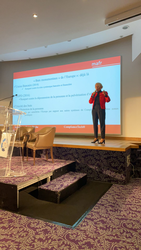
Full reference : Frison-Roche, M.-A., Le "Droit européen de la Compliance" : un rempart contre la crise ? ("European Compliance Law": a bulwark against the crisis?") in Option Finances, Les Défis Conformité / Compliance (Conformity/Compliance Challenges), 15th of September 2020, Paris.
Read the program (in French)
Read the slides of the intervention (in French)
It was possible to attend to the manifestation in live
A bilingual video will be aviaible soon.
Summary of the intervention:
This intervention as keynote speaker was at the articulation between the first two sessions, one on "strategy in times of crisis" and the other on "good governance", and the third session on technology.
Because the question is: "?Does Europe has the pretension to prevent crisis, thank to Compliance Law ?" The answer must be: Yes or No.
If Europe has this pretension to allow answering Yes, and it must have it, it must have, through its public institutions and the crucial European companies - expressing their raison d'être - a clear, simple and coherent vision of the "monumental goals" that it pursues.
Compliance Law is adequate for such an "enterprise" (an "enterprise" always being an "adventure"!footnote-1902) since it is defined through its monumental goals, including crisis prevention, for which Europe must and is able to develop an exemplary model.
When this is done, and it is in the process of being done, it is necessary but sufficient to carry out the technical work of adjusting the legal technical tools with these monumental goals.
____
Sept. 13, 2020
Thesaurus : Doctrine
►Référence complète : A. Maymont. ”Le droit de la compliance au secours de la stabilité financière”. Revue Banque, Revue Banque édition, 2020, pp. 50-53.
____
►Résumé de l'article : L'article reprend la définition du Droit de la Compliance comme ce qui prévient les risques de systèmes, notamment les "risques d'instabilité" qui affectent tout particulièrement les risques financiers, lesquels sont désormais principalement extra-financiers, notamment les cyber risques et les risques environnementaux et climatiques.
Il rappelle que le Droit de la Compliance incorpore le principe juridique de stabilité et confie aux autorités publiques le pouvoir d'inférer dans les contrats pour donner primauté à celui-ci. En matière de stabilité financière, c'est notamment l'ACPR et l'AMF qui le font.
Il souligne que pour être efficace, les régulateurs incitent les entreprises à coopérer. Leur action se justifie par l'ordre public financier, lequel évolue, le principe juridique de stabilité permet aux Autorités d'écarter les règles juridiques ordinaires, notamment la liberté contractuelle des banquiers, l'interdiction des ventes à découvert pendant le Covid étant une illustration de cela.
________
Sept. 11, 2020
Thesaurus : Soft Law
Full reference: Agence Française Anticorruption (French anticorruption agency), Département de l'appui aux acteurs économiques (Support to economic actors department), La politique cadeaux et invitations dans les entreprises, les EPIC, les associations et les fondations (Gifts and invitations policy for firms, public firms, associations and fondations), Guide pratique 2020 (Practical Guide 2020), 11th of September 2020, 14 p.